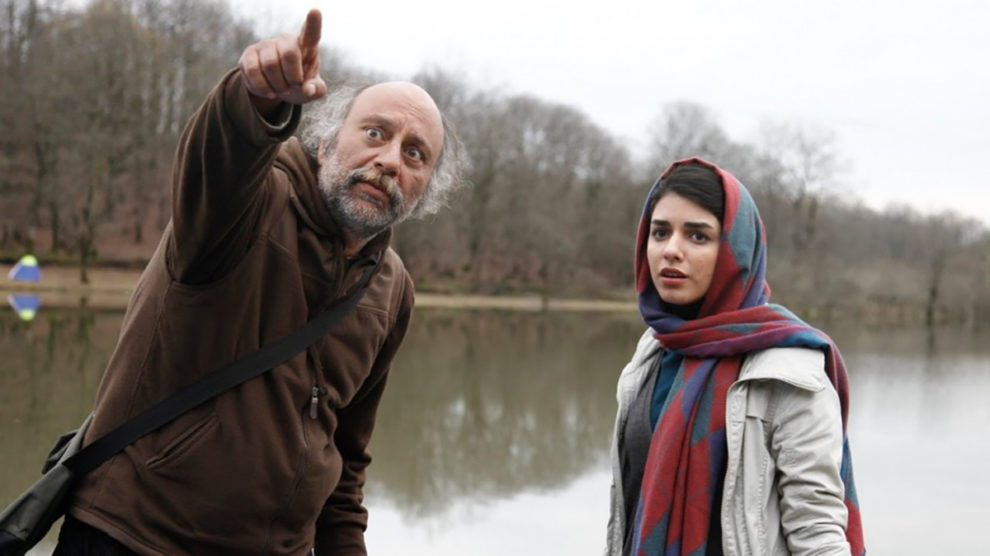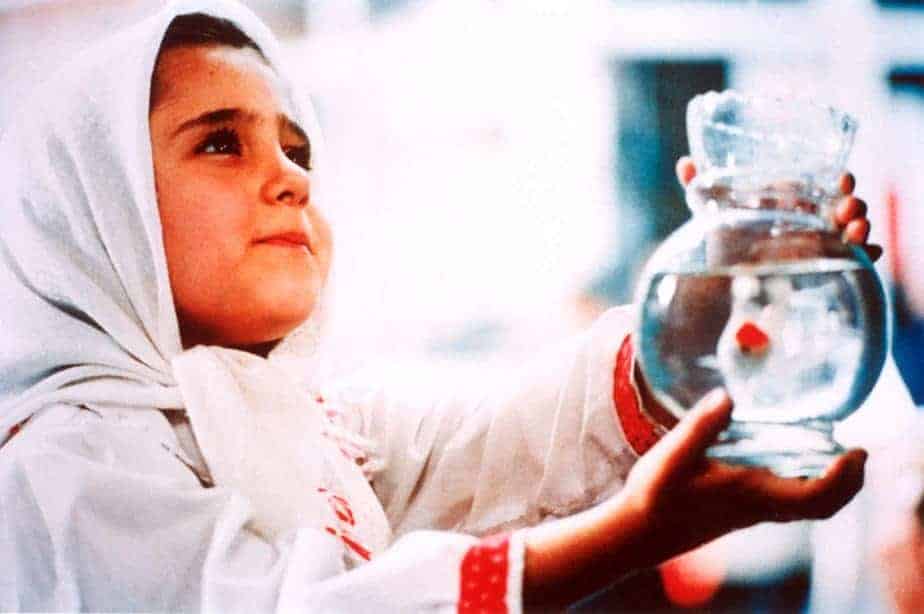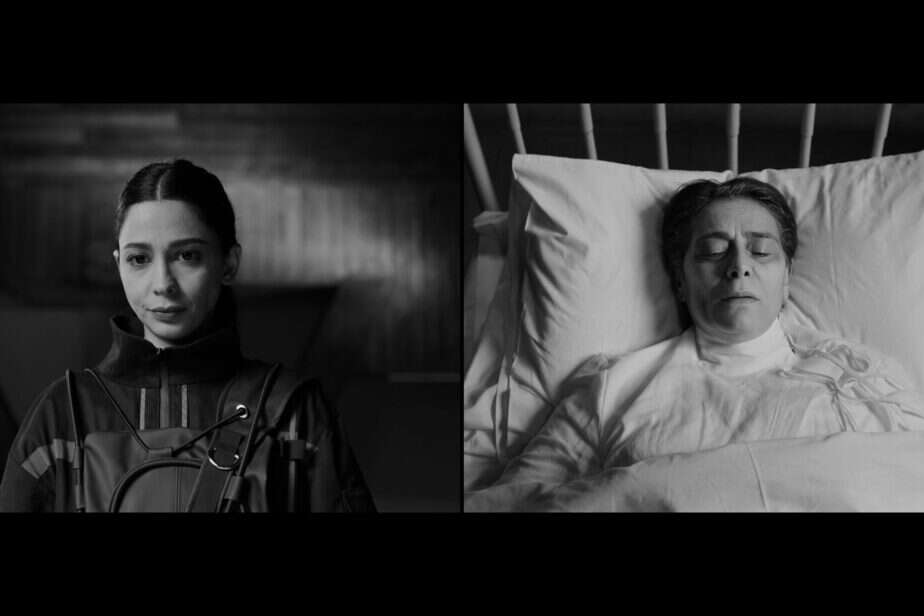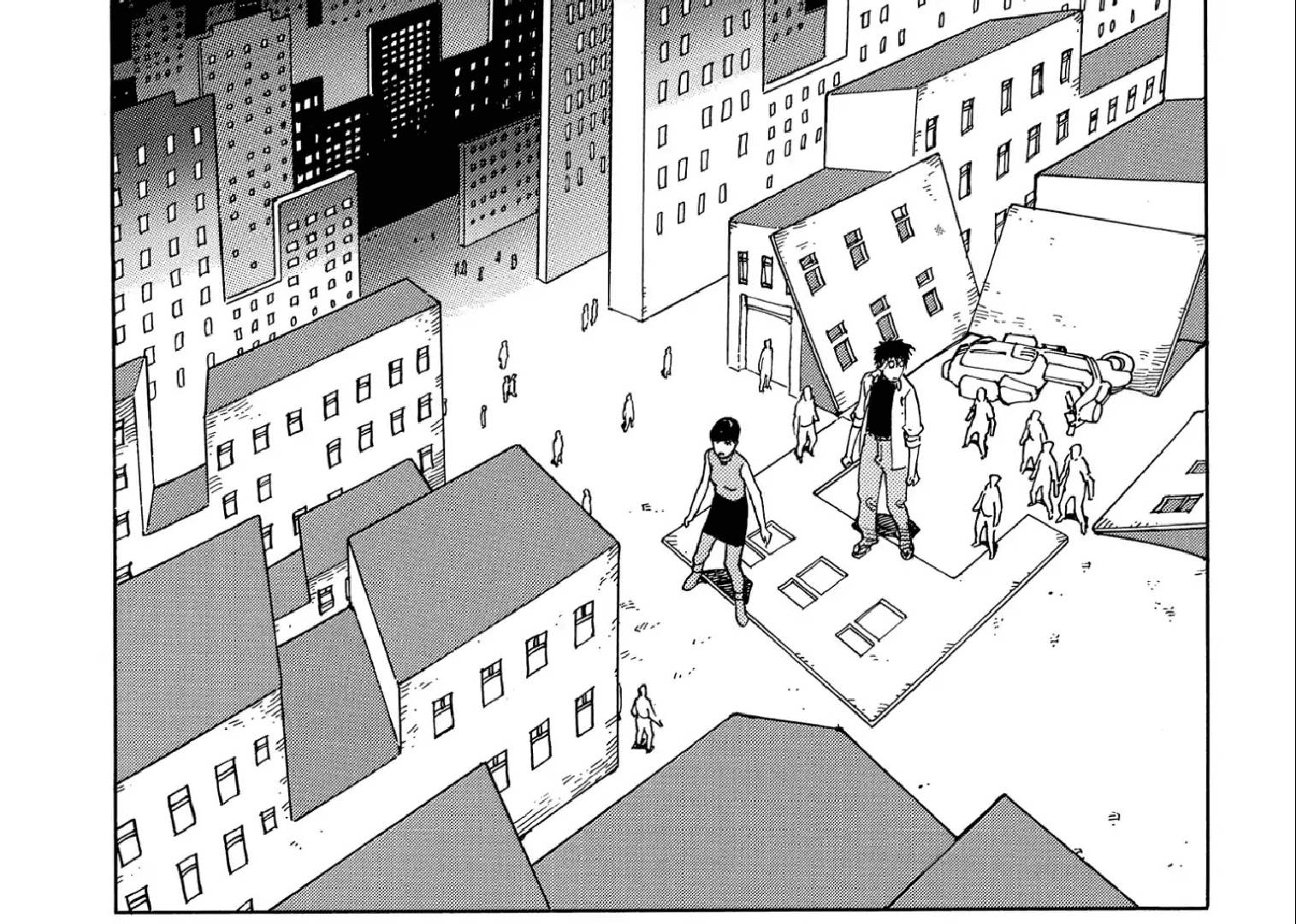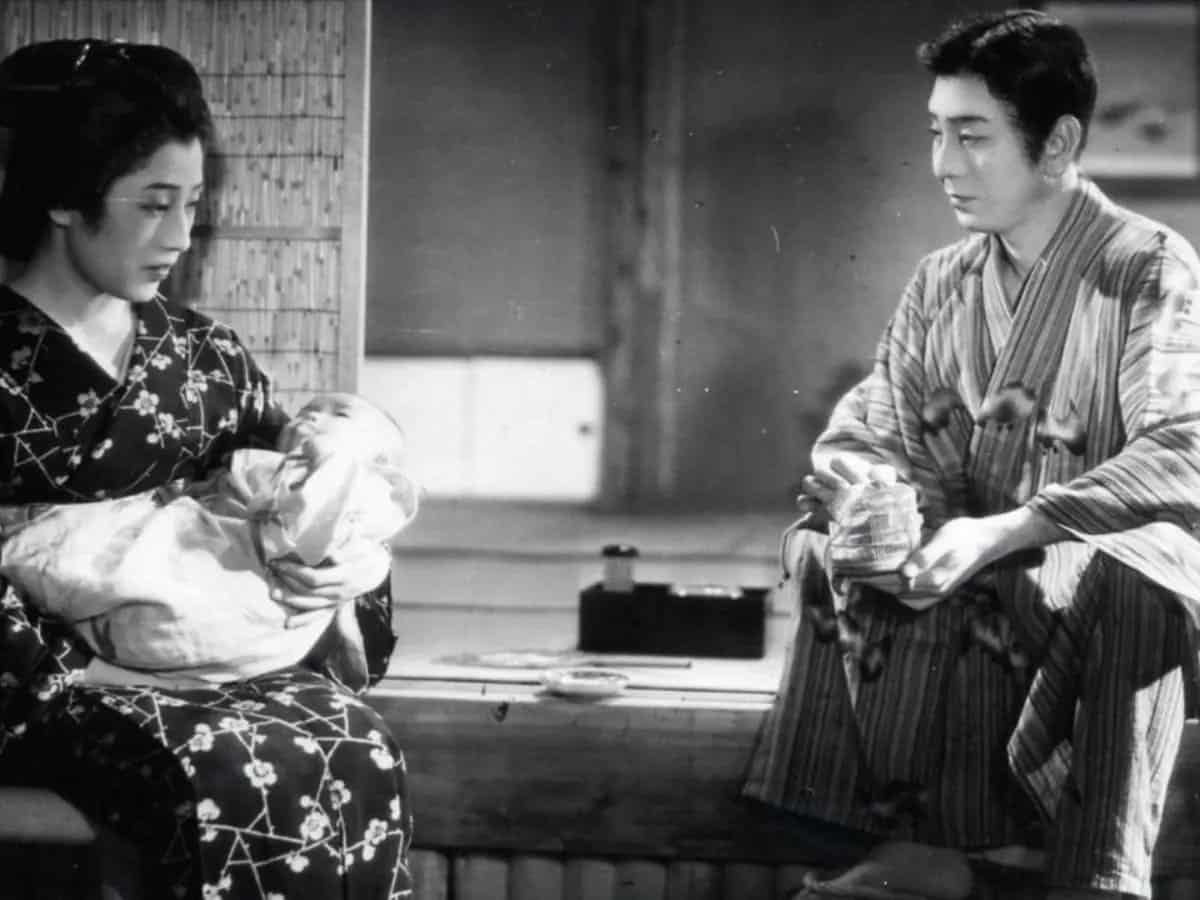For his second feature, Iranian director Shahram Mokri was inspired by a story which seems more fitting for a gruesome murder movie or slasher horror. In 1998. the owners of a restaurant in northern Iran were arrested after they were caught having served human meat in their dishes to their guests. However, he also aimed to further his skills in film and cinematic form, as well as expand on the themes he had introduced in his first feature, “Ashkan, the Sacred Ring and Other Stories”. One of the most interesting aspects, and ultimately a quite demanding, was to use a single-take approach, changing the perspective from one character to the next and utilizing one location, a small lake and the forest close by. “Fish & Cat” thus would manifest the reputation of Mokri within the festival circle and audiences, winning the Horizons Award at Venice Film Festival 2013.
Buy This Title
from Vinegar Syndrome
The story takes place in the Caspian region of Iran, where a group of young travelers and backpackers have gathered around a lake to witness a kite-flying event which will take place the next day. Parviz (Abed Abest) is one of the contestants and is already busy preparing his kite for the upcoming event, and also organizing, making a list of those who also want to take part, such as Kambiz (Faraz Modiri), who is eager to spend a few days away from his father and his increasing obsession with a lost love. During his preparation, Parvis engages in discussion with his friends Mina (Neda Jebraeili) and Pedram (Pedram Sharifi), who help him, as well as meeting other people, even though he has the feeling some of these events have already happened to him, unsure whether it was a dream or a premonition.
At the same time, the two cooks and owners of a nearby restaurant, Babak (Babak Karimi) and Saeed (Saeed Ebrahimifar), have gone into the woods to take care of the grisly contents one of them carries in his garbage bag. However, their trip is cut short as they meet some of the people who are camping at the lake. After they have managed to take care of the bag's insides, they try to set traps for the young people at the lake, luring them into the forest where they might meet their ultimate fate.
As with his first feature, “Fish & Cat” perhaps also needs to be viewed from the surface as well as its metaphorical level. Whereas “Ashkan” followed a more episodic structure, this feature is much more linear, albeit with various repetitions from different perspectives, emphasizing the idea of a time loop or the characters going through similar experiences and encounters. Mokri's second directorial effort is much more minimalist than its predecessor, strengthening the stage-like approach, which would become more important in this and the filmmaker's future projects, such as “Careless Crime”. In combination with the single take-method, there is a growing feeling for the viewer, that you are equally entangled within this “time loop”, both aware of this fact but unable to prevent the same happenings from occurring over and over.
Apart from Mahmoud Kalari`s cinematography, there is also Christophe Rezai's score, which creates a sense of tension and foreboding within each scene. While it certainly makes some encounters and dialogues more interesting than others, it also adds to the overall concept of inevitablity, as mentioned before. Much like the characters in a slasher movie ultimately falling prey to the killer, the characters follow a pattern, a preset path which they must obey, falling for the same mistakes as before, making “Fish & Cat” a tale about the human condition, perhaps even a political allegory when it comes to Iran's politics and society.
“Fish & Cat” is a much more ambitious but also challenging second feature by director Shahram Mokri. Utilizing many elements, from its music to its cinematography and its cast, it tells a story about fate, and how we are unable to escape confusion and mistakes, even though we may be acutely aware of what is the right way.


